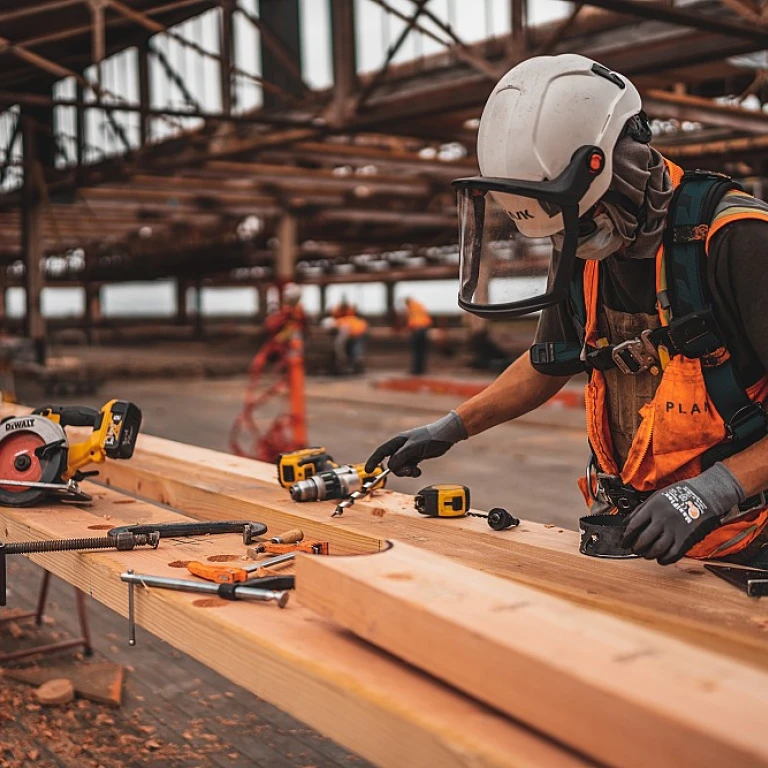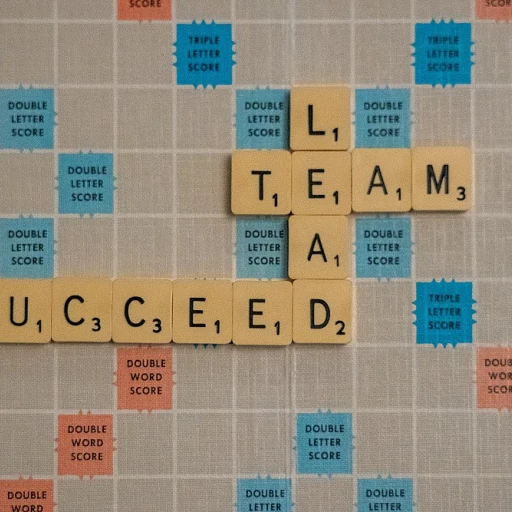
Understanding the Importance of Assessment Tools in Manufacturing
{Recognizing the Role of Effective Assessment Tools
In the dynamic landscape of the manufacturing industry, ensuring the right fit for roles is paramount. This is where assessment tools come into play. They help in determining a candidate's skills, knowledge, and mechanical reasoning. These tools evaluate job performance, ensuring that hiring processes are both efficient and advantageous. With manufacturing becoming increasingly complex, the need to align candidates' skills with job requirements becomes even more crucial.
Pre-employment tests offer employers insights into a candidate's cognitive ability, technical skills, and problem-solving prowess. Such tests can cover electrical and mechanical reasoning, providing data on a candidate's aptitude for specific manufacturing roles. These evaluations are essential for roles requiring attention to detail and decision-making capabilities.
Understanding why assessment tools are critical assists in creating a streamlined hiring process. Skills tests not only evaluate the basic abilities of potential hires but also ensure that they can meet industry-specific demands. As technology evolves, the integration of online assessments further simplifies this process, making it easier than ever to find the right fit.
For more insights, you might explore the advantages of managing industry-related expenses which can complement effective workforce decision-making.
}Key Features to Look for in Assessment Tools
Features to Consider in Assessment Tools
Selecting the right assessment tools for manufacturing is crucial to streamline the hiring process and ensure candidates possess the necessary skills for diverse roles. Here are key features to consider when choosing assessment tools:- Comprehensive Skill Coverage: An effective tool should evaluate a range of skills, from basic mechanical knowledge to advanced cognitive ability. This encompasses assessments for mechanical reasoning, electrical processes, and technical skills.
- Data-Driven Insights: Opt for tools that provide robust data analytics to offer insights into candidate performance. This helps in understanding cognitive ability, problem-solving skills, and attention to detail, which are pivotal for manufacturing roles.
- Pre-Employment Testing: Prior to hiring, pre-employment tests such as aptitude tests and skills tests can provide a clearer picture of a candidate's potential job performance. They should include both practical tests and reasoning tests that simulate real-world manufacturing scenarios.
- Job-Relevant Assessments: Ensure that the assessments are tailored to specific job roles. This focus on role-specific tests highlights candidates' capability to perform industry-relevant tasks effectively.
- Online Platform: Utilizing an online assessment format can streamline the evaluation process, making it easier to test a larger pool of candidates quickly and efficiently. The result is a more agile hiring process.
Evaluating Different Types of Assessment Tools
Assessing the Array of Available Tools
In the diverse landscape of the manufacturing industry, selecting the right assessment tools is crucial for enhancing productivity and efficiency. Understanding the broad spectrum of available tools will enable businesses to identify the most effective solutions for evaluating candidates and processes.
When evaluating different types of assessment tools, it's essential to consider their application in various contexts such as pre-employment screening, on-the-job performance, and skill development. These tools range from basic skills tests to comprehensive cognitive ability assessments, designed to gauge a candidate's mechanical reasoning and problem-solving capabilities.
To effectively select an assessment tool, consider features such as the ability to customize tests for specific roles or industries. Tools that support online assessment are increasingly popular, offering flexibility in the hiring process by allowing recruiters to evaluate candidates remotely.
Incorporating specialized assessments like technical skills tests and reasoning tests can further refine the evaluation process by focusing on the specific knowledge and mechanical skills required for manufacturing roles. These assessments often include mechanical and electrical process evaluations to ensure candidates possess the foundational knowledge necessary for success in their positions.
An important consideration is the availability of detailed data analysis. High-quality assessment tools will provide comprehensive data on candidate performance, assisting decision-makers in aligning their hiring strategies with business objectives and ensuring thorough assessments of a candidate's skill set.
By carefully evaluating these various assessment tools, manufacturers can greatly improve their selection process, leading to better alignment with business goals and enhanced operational efficiency. For those interested in delving deeper into the intricacies of modern manufacturing technologies, you can explore the role of electric motor belt drives in work tech.
Aligning Assessment Tools with Business Goals
Strategically Aligning Tools with Business Objectives
Aligning assessment tools with overarching business goals can elevate the effectiveness of your hiring process. In the competitive landscape of the manufacturing industry, assessments not only assist in the selection of candidates but also enhance organizational capabilities by pinpointing essential skills needed for specific manufacturing roles. Ensure your tools are catered to evaluating technical skills, cognitive abilities, and problem-solving talent that are crucial in manufacturing. Skills tests and aptitude tests designed for mechanical and electrical reasoning are particularly vital. These provide insights into a candidate's comprehension, attention to detail, and overall capability to meet the demands of real-world job performance. Assessment tools should complement the strategic direction of your business. For example, if the aim is to foster innovation, choose assessments that evaluate cognitive ability and creativity. Conversely, if the focus is on maintaining quality and efficiency, opt for tools that rigorously test attention to detail and technical knowledge. The data garnered from these assessments can inform decisions around talent acquisition and development, further supporting business objectives. Moreover, assessments should be woven into the pre employment hiring process in a manner that respects both the candidates and the roles they are applying for. Online assessments can streamline this process, making it accessible and efficient for all parties involved. In doing so, you refine decision-making, ensuring that candidates are not just capable on paper but also align with the strategic and cultural ethos of your organization.Case Studies: Successful Implementation of Assessment Tools
Examples of Effective Tool Usage in Real-world Scenarios
Case studies in the manufacturing industry reveal how assessment tools can significantly enhance the hiring process and job performance. Companies that select the appropriate tools for evaluating candidates often see improvements in both efficiency and employee quality. These improvements hinge on aligning tools with specific job roles and organizational goals. A leading manufacturer, for instance, implemented online assessments for pre-employment screening of candidates. By focusing on cognitive ability, mechanical and electrical reasoning, and technical skills, they improved their candidate selection process, minimizing mismatches in the hiring stages.- Outcome 1: Increased Precision: The use of reasoning tests helped identify candidates with strong problem-solving and decision-making abilities. These skills are crucial in technical and mechanical roles where quick, accurate decision-making is required.
- Outcome 2: Enhanced Job Fit: With skills tests tailored to assess both mechanical reasoning and attention to detail, the company could better evaluate the aptitude of candidates for specific manufacturing roles.
- Outcome 3: Streamlined Hiring Process: The integration of online assessments made it easier to manage large volumes of candidates, ensuring that only those who met the basic requirements for the job continued through the hiring process.
Future Trends in Assessment Tools for Manufacturing
Emerging Trends Shaping the Landscape of Manufacturing Assessments
As the manufacturing industry continues to evolve, so too do the strategies and tools used to assess and enhance candidate skills. Here are some key trends that are likely to shape the future landscape of assessment tools in the industry:- Integration of Cognitive and Behavioral Assessments: Modern assessments are increasingly blending cognitive ability and behavioral analysis to gain a holistic view of candidates. By understanding not just the technical skills but also a candidate's reasoning and problem-solving abilities, organizations can better predict job performance and fit for manufacturing roles.
- Personalized Testing Experience: Customizing assessment tests based on the specific roles and skills needed, such as mechanical or electrical knowledge, is becoming more common. This personalization enhances the relevance of tests, offering more accurate insights into a candidate's aptitude and potential.
- Data-Driven Decision Making: The use of big data and analytics in assessments is becoming more prevalent. This enables employers to make informed hiring decisions based on hard data about an individual's skills tests and assessments, reducing biases and enhancing the hiring process.
- Continuous Assessment During Employment: Beyond the hiring process, ongoing assessments throughout an employee's tenure support continuous development and alignment with business goals. This helps in identifying areas for improvement and recognizing potential for growth within the company.
- Increased Use of Online Platforms: With the rise of remote work, the use of online assessment tools has expanded, making it easier to conduct pre-employment tests and monitor ongoing skills development. These platforms are increasingly user-friendly for both candidates and employers.
- Technical Skills and Attention to Detail: As manufacturing roles grow more complex, there is a heightened emphasis on assessing technical skills and candidates' attention to detail through comprehensive test protocols, such as mechanical reasoning and reasoning tests.













